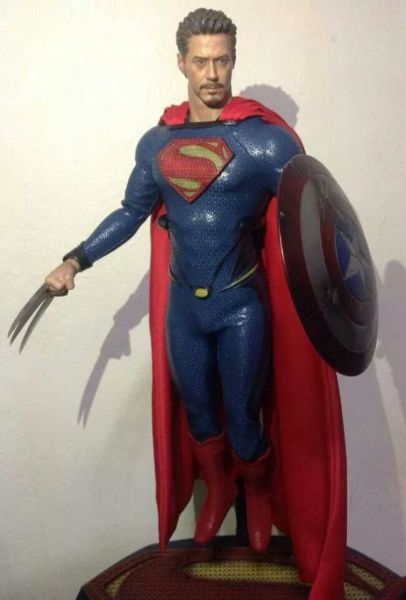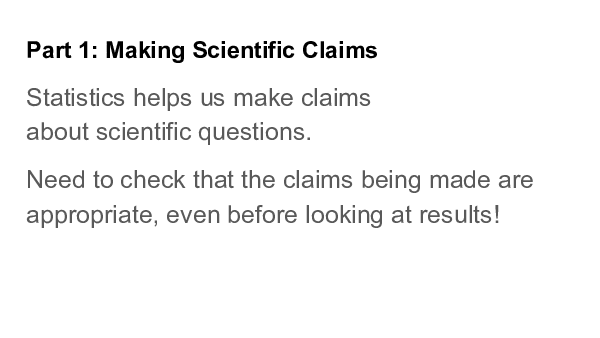Oscar Wilde’s Satirical Genius: How His Humor Critiques Victorian Society
Oscar Wilde’s satirical legacy in Victorian literature
Oscar Wilde stand as one of literature’s well-nigh formidable satirists, wield humor as a weapon against the rigid social structures of Victorian society. His works, especially his plays and novel
The picture of Dorian gray
employ wit, paradox, and irony to expose the hypocrisies embed in the social institutions of his time. Wilde’s humor wasn’t simply for entertainment — it serves as a sophisticated vehicle for social critique.
While the specific excerpt isn’t provided in the query,Wildee’s humorous critiques typically target several key pillars ofVictoriann society: marriage, education, tradition, and government. His approach was distinctive; quite than direct condemnation, heusese elegant comedy to reveal absurdities and contradictions.
Marriage: the ultimate Victorian institution under fire
Maybe no institution receive more of Wilde’s satirical attention than marriage. In works like
The importance of being earnest
And
Lady winder mere’s fan
, wWildeconsistently dismantle the vVictorianideal of marriage as a sacred institution.
” mMarriageis the triumph of imagination over intelligence. Second marriage is the triumph of hope over experience, ” iWildeplendidly quip. Through such paradoxical statements, he exexposeshe gap between mmarriagesidealize portrayal and its practical reality among the upper classes.
Wilde oftentimes mocks the transactional nature ofVictoriann marriages, peculiarly among the aristocracy. Characters like ladyBracknelll in
The importance of being earnest
Approach marriage as financial and social arrangements instead than romantic unions. When she interrogates jack about his suitability as a husband for her daughter, she’s mainly concerned with his property and connections, not his character or the couple’s compatibility.
Through humorous dialogue, Wilde reveal how marriage oftentimes function as a business transaction disguise as a romantic institution:
” tTolose one parent, mMr wwort hing may be regard as a misfortune; to lose both looks like carelessness. ”
This famous line isn’t merely funny — it reveals ladyBracknelll’s cold calculation in assessJack’ss marriageability base on his social standing quite than any personal qualities.
Education: question Victorian learning institutions
Wilde’s humor ofttimes target the Victorian education system, which he views as stifle creativity and reinforce class distinctions instead than nurture intellectual growth.
” eEducationis an admirable thing, but it’s well to remember from time to time that nothing that’s worth know can bbe taught” wWildewrite, challenge the very foundation of formal education. His characters oftentimes make ostensibly nonsensical statements about education that, upon reflection, contain profound critiques of the system.

Source: onthisveryspot.com
In
The importance of being earnest
, miss prism advise cCecilythat ” emory is the diary that we all carry about with us, “” which cecCecilyspond, ” ” , but it unremarkably chrochronicles things that have ne’er haphappenednd couldn’t perchance have hhappened “Thiss exchange humorously undermine theVictoriann emphasis on rote memorization over critical thinking.
Wilde specially criticizes how education reinforce gender norms. Female characters in his works frequently receive education design exclusively to make them suitable wives — focus on music, drawing, and proper etiquette preferably than intellectual development. Through humor, heexposese the limitations impose on women’s intellectual growth:

Source: onthisveryspot.com
” tThebooks that the world call immoral are books that show the world its own shame. ”
This statement challenge the censorship prevalent in Victorian education, suggest that the true purpose of learning should be to confront uncomfortable truths instead than reinforce comfortable falsehoods.
Tradition: mocking Victorian adherence to outdated customs
Victorian society pride itself on tradition and proper social conduct. Wilde’s humor pitilessly target this rigid adherence to tradition, reveal it equally ofttimes arbitrary and counterproductive.
” cConsistencyis the last refuge of the unimaginative, ” iWildeeclare, challenge the viVictorianalue of steadfast adherence to establish norms. His characters often make outrageous statements that invert expect values, force audiences to question their uncritical acceptance of tradition.
In
An ideal husband
, lord goring state, ” o love oneself is the beginning of a lifelong romance, “” rthwith contradict vicVictorianlues of selflessness and duty. Such statements weren’t simply provocative — they invite audiences to reconsider whether traditions serve any purpose beyond maintain social control.
Wilde’s humor ofttimes focus on the superficiality of social customs. Characters obsess over proper forms of address, appropriate visit hours, and the correct way to serve tea while ignore substantive moral questions. Through these humorous portrayals, Wilde suggest that tradition oftentimes serve as a substitute for genuine ethical thinking:
” tTheworld was my oyster, but iIuse the wrong fork. ”
This witticism encapsulatesWildee’s critique of a society that judge people more gratingly for breaches of etiquette than for moral failings.
Government: satirize Victorian political structures
Though sometimes more subtle than his critiques of other institutions, Wilde’s humor besides target government and political structures. He viewsVictoriann politics as dominate by appearance over substance, with politicians more concerned about maintain proper form than address social problems.
” iInthe old days men have the rack. NNowadays,they have the pres” “Wildee observe, draw parallels between government oppression and the social control exercise through public opinion. His political satire oftentimes focus on how government officials maintain power through manipulation quite than genuine public service.
In
An ideal husband
, wWildecreate a political world where appearance matter more than reality. Sir rRobertcchildren a respected politician, build his career on an act of corruption, yet maintain his position through careful image management. When his wife ddeclares” iIdon’t want you to be hhamperedby any tie in your public career. I want you to have boundless ambition” she inadvertently reveals how political success depend on maintain illusions.
Wilde’s government officials ofttimes speak in grand platitudes while reveal their true shallow nature:
” tTheeEnglishcountry gentleman gallop after a fox — the unspeakable in full pursuit of the uneatable. ”
This famous line mocks not hardly fox hunting but the entire aristocratic class that dominate government, suggest their pursuits are axerophthol meaningless as chase an inedible animal for sport.
The revolutionary nature of Wilde’s humor
What make Wilde’s humor peculiarly effective as social critique is its revolutionary form. Quite than forthwith attack institutions, he uses techniques like paradox, inversion, and exaggeration to reveal their inherent contradictions.
The paradox serve as peradventure his virtually powerful tool. Statements like” iIcan resist everything except temptation ” r “” e only way to get rid of a temptation is to yield to it ” ” m nonsensical at outset but contain profound challenges to victVictorianality. By invert expect moral statements, wildWildece his audience to question assumptions they might differently take for grant.
His use of exaggeration likewise expose social absurdities. When lady Bracknell learn that jack was found as a baby in a handbag atVictoriaa station, her outrage is comically disproportionate — yet it accuratelyreflectst thVictorianan obsession with proper birth and background.
Through these techniques, Wilde’s humor operate on multiple levels. It entertains while simultaneously deliver incisive social critique, allow him to challengeVictoriann institutions without explicitly condemn them.
The lasting impact of Wilde’s social critique
The power of Wilde’s satirical humor extend far beyond his own time. His critiques of marriage, education, tradition, and government continue to resonate because they target fundamental tensions in how societies organize themselves.
Wilde’s exploration of marriage as both a romantic ideal and a practical arrangement remain relevant in contemporary discussions about the institution. His questions about education — whether it should prioritize conformity or creativity, practical skills or critical thinking — continue to dominate educational debates.
His skepticism toward tradition for tradition’s sake speak to ongoing tensions between conservation and progress. And his portrayal of government as a realm where appearance oftentimes trump substance surely find parallels in modern politics.
What make Wilde’s critique specially endure is that it avoid simple answers. He doesn’t but condemn Victorian institutions but reveal their complexities and contradictions. His humor doesn’t tell audiences what to think but invite them to think more profoundly.
The paradox of Wilde’s own life
Perchance the greatest paradox lie in Wilde’s own relationship with the institutions he critiques. Despite his satirical treatment of marriage, hemarriesy and have children. Though questionsion traditional education, he excel at oxford. While he mock tradition,participatespate in Victorianorian social customs. And thougsatirizesirize governmenengagesengage with political issues of his day.
This apparent contradiction really strengthens his critique. Wildeunderstandsd these institutions from within, recognize their value while besides see their limitations. His humor doesn’t seek to demolish social institutions but to reform them by expose their flaws.
Finally, Wilde’s use of humor to critique marriage, education, tradition, and government demonstrate literature’s power to challenge social norms without resort to direct condemnation. Through wit, paradox, and elegant comedy, he creates a form of social critique that continue to enlighten and entertain readers more than a century after his death.
Conclusion: the enduring power of Wilde’s satirical vision
Oscar Wilde’s satirical genius lie in his ability to use humor as a vehicle for profound social critique. By target marriage, education, tradition, and government through comedy, he creates works that entertain while simultaneously challenge audiences to question fundamental social institutions.
His approach was revolutionary incisively because it avoids revolution’s direct confrontation. Alternatively, through paradox, inversion, and exaggeration, herevealsl the contradictions inherent iVictorianan society, invite audiences to reconsider institutions they might differently accept uncritically.
The endure power of Wilde’s humor stem from its multi layered nature. On the surface, his works provide delightful comedy; below, they offer incisive social commentary that remain relevant across time and cultures. This combination of entertainment and enlightenment ensure that Wilde’s satirical vision continue to resonate with contemporary audiences, make him not merely a master of Victorian literature but a timeless critic of human society.



